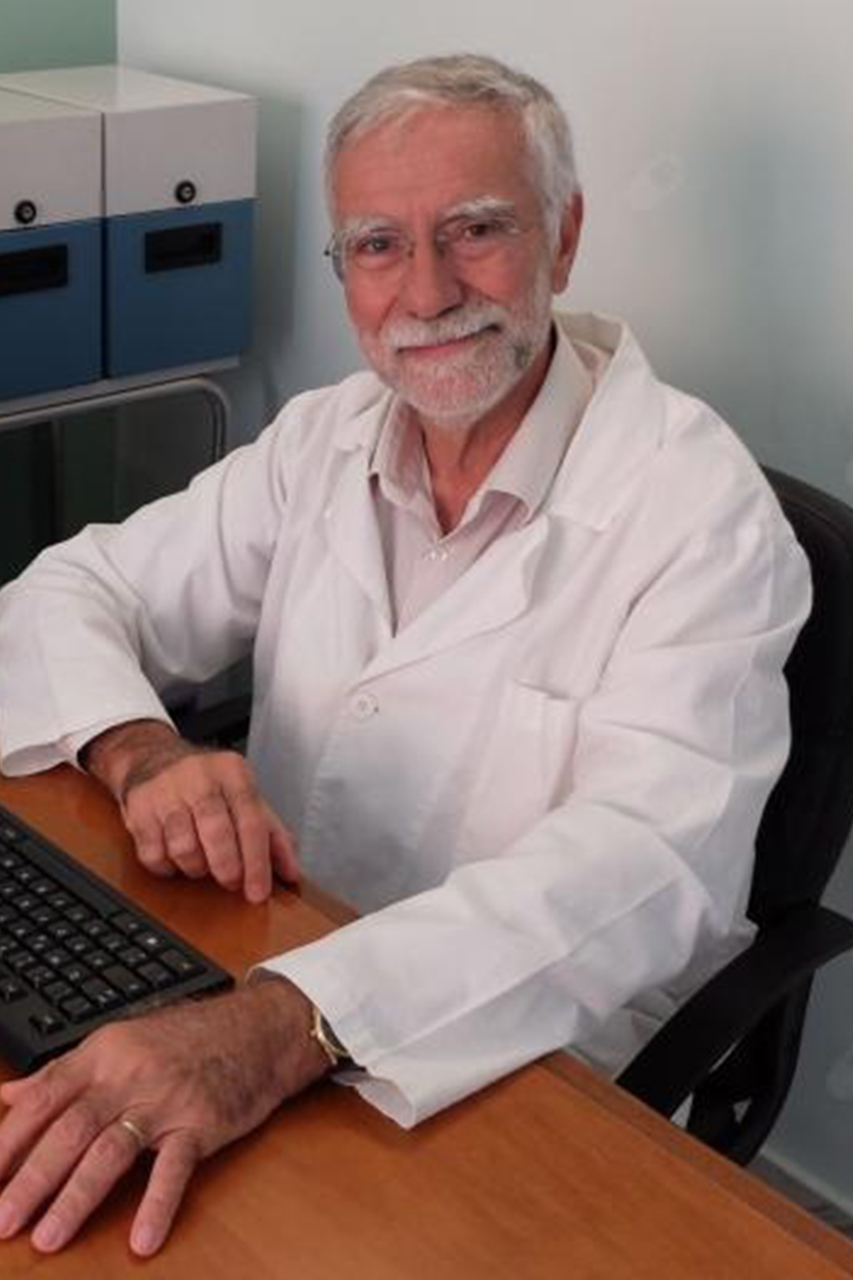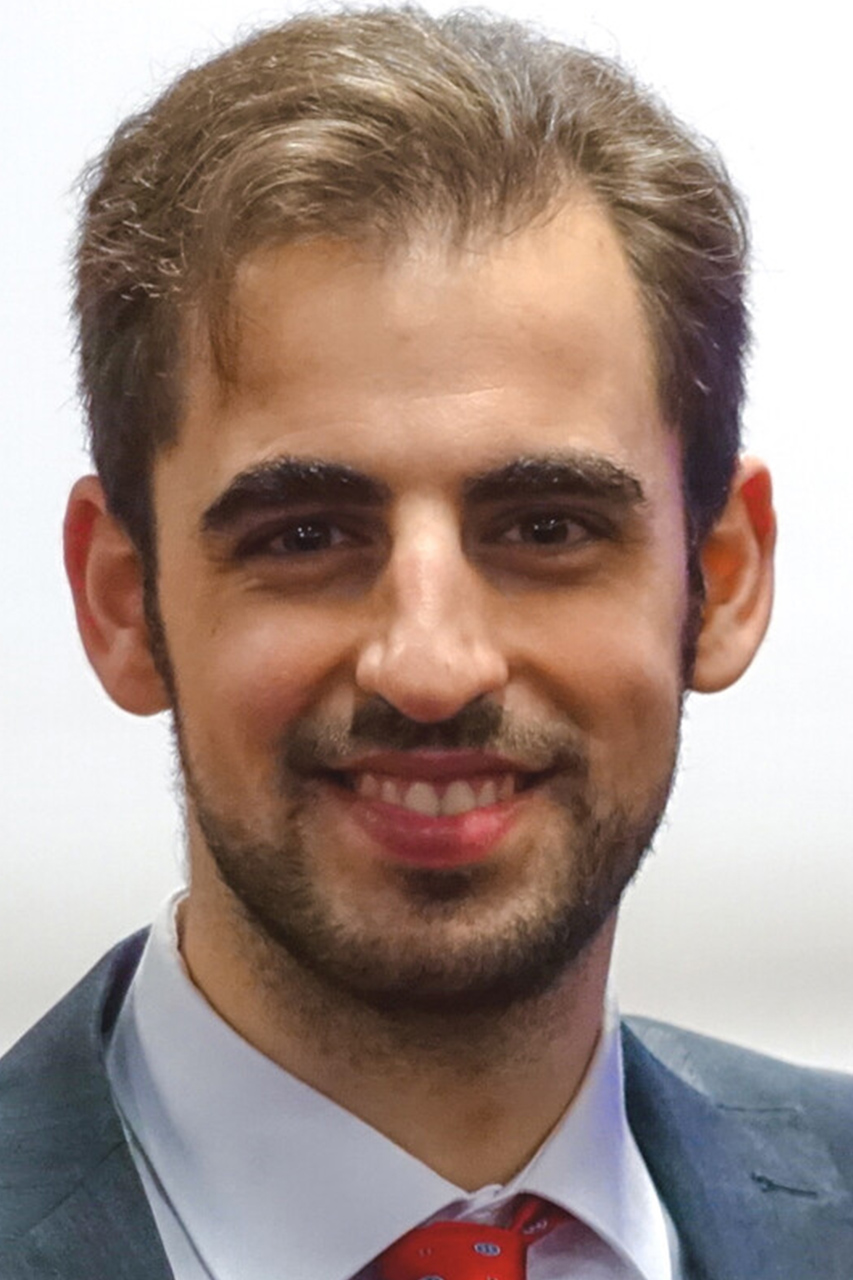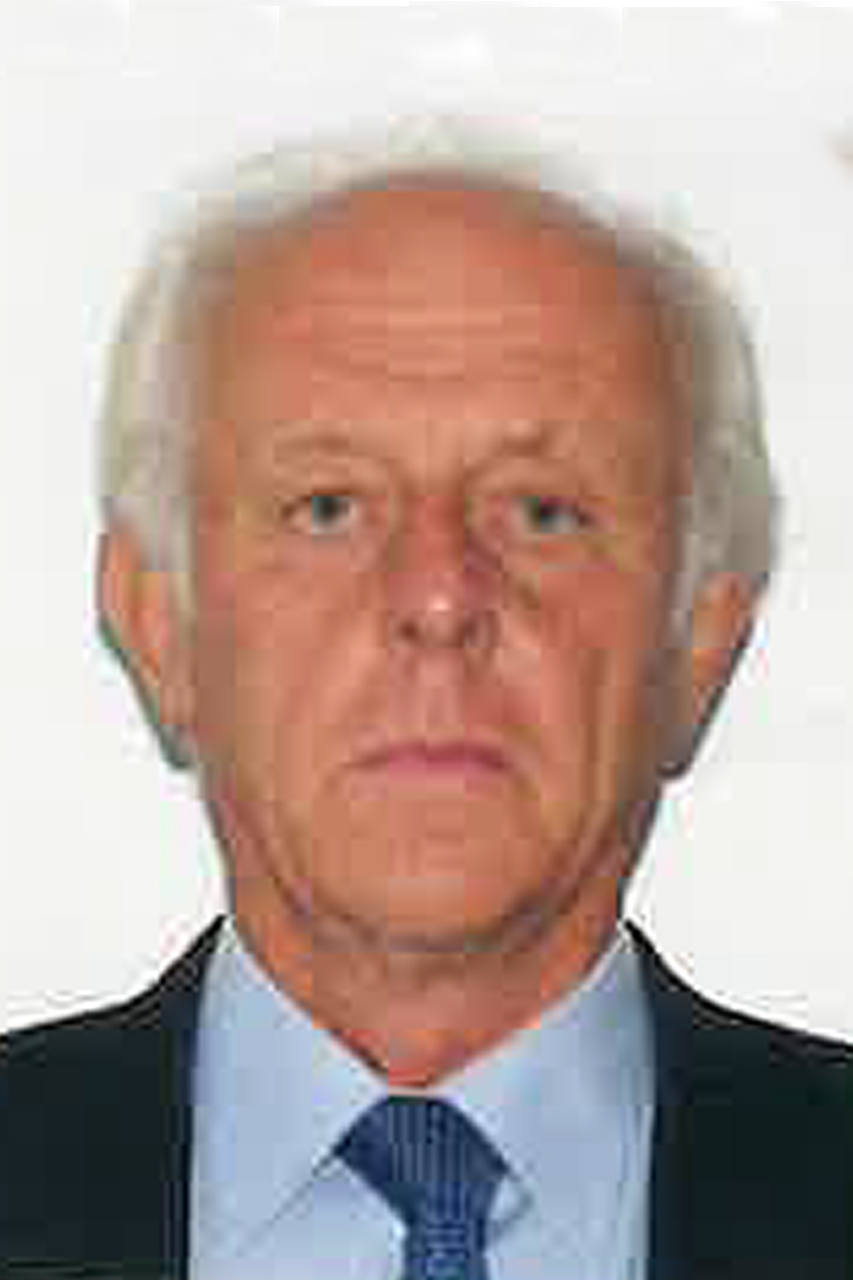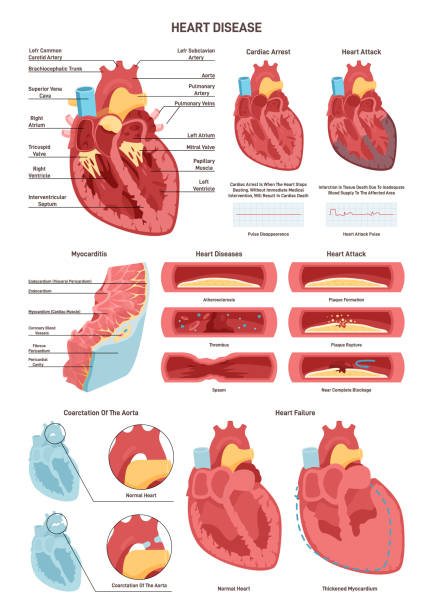specializations
Cardiology

Leopoldo Bianconi
Leopoldo Bianconi
Registered with the Medical Association of Rome with registration number 23564
Email: info@aventinomedicalgroup.com
Tel.: 065780738 / 0657288349
Education and Qualifications
Board-certified physician who graduated from the Catholic University of the Sacred Heart in Rome in 1976 and completed his cardiology specialization three years later at the same institution. Subsequently, he obtained US medical licensure by successfully passing the ECFMG and VQE examinations.
Professional experience
- From 1980 to 2014, worked at the Cardiology Division of San Filippo Neri Hospital in Rome, serving as Head of the Cardiology Inpatient Unit from 1998.
- From 2014 to 2017, he directed the Cardiology Department at Villa Pia Clinic in Rome.
- He specializes in all cardiovascular diseases, with a particular focus on the diagnosis and treatment of cardiac arrhythmias.
- During the academic years 2002-2003 and 2003-2004, he taught Physiology as a Professor in a degree program at the Catholic University of the Sacred Heart in Rome.
- He has been a reviewer for medical journals such as the Italian Heart Journal, the New England Journal of Medicine, and Drugs.
- He offers patients his extensive clinical experience and professionalism.
Services Provided
- Cardiology Consultation
- Electrocardiogram (ECG)
- Holter ECG Monitoring (from 24 hours to 7 days)
- Polysomnography for the Study and Diagnosis of Obstructive Sleep Apnea Syndrome
- Remote Diagnosis of Arrhythmias (teletransmission of self-recorded ECG tracings by the patient in case of symptoms)
We speak: Italian, English, French
Publications
He has published over 60 scientific articles in national and international journals and books. His most significant publications can be found on ResearchGate website.

Andrea Bezzeccheri
Andrea Bezzecheri
Registered with the Medical Association of Salerno with registration number 10868 since 10/03/2017.
Email: info@aventinomedicalgroup.com
Tel.: 065780738 / 0657288349 Book your appointment here
Education and Qualifications
- Specialization in Cardiovascular Diseases from the University of Rome Tor Vergata
- Medical Degree from the University of Salerno
Professional Experience
Since 12/2022: Interventional Cardiologist at GVM Care & Research, San Carlo di Nancy Hospital, Rome, Italy
01/03/2022 – 30/11/2022: Interventional Cardiologist, Cardiocentro Mediterranea, Naples, Italy
01/06/2021 – 29/01/2022: Assistant at Hartcentrum ZNA Middelheim, Cardiac Catheterization Laboratory, Antwerp, Belgium
06/2020: Teaching Assistant in “Special Pharmacology and Therapy”, University of Rome “Tor Vergata”
29/12/2017 – 29/12/2021: Cardiology Fellow, Tor Vergata University Hospital Foundation, Rome, Italy
01/05/2017 – 31/08/2017: Emergency Medical Service, Lagonegro District, Basilicata, Italy
Conditions Treated
- Angina Pectoris
- Aortic Aneurysm
- Arrhythmia
- Arteriopathy
- Ischemic Heart Disease
- Diabetes
- Dyslipidemia
- Dyspnea
- Extrasystoles
- Myocardial Infarction
- Heart Failure
- Arterial Hypertension
- Myocardial Ischemia
- Lymphedema
- Myocarditis
- Heart Decompensation
- Syncope
- Aortic Stenosis
- Carotid Stenosis
- Valvulopathy
- Vasculopathy
Diagnostic and Therapeutic Methods
- Specialist Cardiology Consultation
- Electrocardiogram (E.C.G)
- Cardiac Holter: Dynamic Electrocardiogram Monitoring (from 24 hours to 7 days)
- Blood Pressure Holter: 24-hour Blood Pressure Monitoring
- Polysomnography for the study and diagnosis of Obstructive Sleep Apnea Syndrome
- Remote Diagnosis of Arrhythmias (teletransmission of self-recorded ECG tracings by the patient during symptoms)
- Cardiac Echocardiography with Color Doppler
We speak:
Italian, English

Armando Calzolari
Armando Calzolari
Specialist in Cardiology and Sports Medicine
Dr. Armando Calzolari is a medical doctor with over forty years of clinical experience, specialized in Cardiovascular Diseases and Sports Medicine.
He graduated in Medicine and Surgery from the University of Rome “La Sapienza”, obtained a specialization in Cardiology from the University of Ferrara, and later completed a second specialization in Sports Medicine.
He also worked as a volunteer assistant in the Pediatric Cardiac Surgery Unit led by Prof. Lucio Parenzan in Bergamo, gaining solid expertise in the pediatric field.
Services offered at Aventino Medical Group
At our clinic, Dr. Calzolari provides:
- Non-competitive sports medical check-ups
For children, adolescents, and adults engaging in physical activity at school, in gyms, or in amateur settings. The check-up includes a resting ECG and the issuance of a certificate in accordance with current regulations. - Pediatric cardiology consultations
For children and adolescents with cardiovascular symptoms, a family history of heart disease, or for preventive evaluation. The consultation includes medical history, physical examination, and additional tests when needed.
Cardiology at Aventino Medical Group
What does Cardiology deal with?
Cardiology is the branch of medicine that focuses on the diagnosis, study, and treatment of cardiovascular diseases, which affect the heart and blood vessels.
The cardiologist is responsible for preventing, diagnosing, and treating these conditions through clinical examinations, pharmacological therapies, and monitoring. In contrast, the cardiac surgeon performs surgical procedures in the operating room.


When should you see a cardiologist?
It is advisable to consult a cardiologist in the following cases:
- Onset of symptoms such as fatigue, chest pain, palpitations, high blood pressure.
- Presence of risk factors such as high cholesterol, diabetes, obesity, a sedentary lifestyle, or a family history of cardiovascular diseases.
- Monitoring of blood pressure, cholesterol, and triglyceride levels.
- Routine check-ups: every two years in normal conditions and annually after age 50.
- Pre-sports evaluation for those engaging in physical activities.
When should you go to the hospital?
If you experience persistent chest pain that radiates to the left arm or sudden breathing difficulties, it is crucial to seek immediate emergency care.
Risk factors and symptoms of cardiovascular diseases
Main cardiovascular risk factors:
High cholesterol (hypercholesterolemia)
High blood pressure (hypertension)
Smoking
Diabetes mellitus
Obesity and overweight
Depression and chronic stress
Sedentary lifestyle and physical inactivity
Family history of cardiovascular diseases
Symptoms not to ignore:
Fatigue: persistent tiredness and weakness.
Chest pain: pressure, discomfort, or burning sensation in the chest.
Shortness of breath (dyspnea): difficulty breathing.
Palpitations: fast or irregular heartbeat.
Dizziness and vertigo: feeling faint or loss of balance.
Presyncope and syncope: episodes of fainting.
Swelling in the legs and ankles: possible sign of heart failure.
Pain or numbness in the limbs unrelated to stress or trauma.


Cardiovascular diseases treated by our specialists
At Aventino Medical Group, our cardiologists specialize in the prevention, diagnosis, and treatment of:
- High blood pressure (hypertension)
- Coronary artery disease
- Atherosclerosis
- Arrhythmias (atrial fibrillation, ventricular tachycardia)
- Heart failure (cardiac insufficiency)
- High cholesterol and triglycerides
- Congenital heart disease
- Endocarditis and pericarditis
- Congenital malformations
- Cardiomegaly (enlarged heart)
What happens during a cardiology consultation?
A cardiology consultation at Aventino Medical Group follows several steps to ensure an accurate and personalized diagnosis.
1. Comprehensive Medical History (Anamnesis)
The cardiologist will gather detailed information about the patient’s clinical history, including:
- Presence of symptoms and their frequency.
- Lifestyle, physical activity, and diet.
- Family history of cardiovascular diseases.
2. Physical Examination
The consultation continues with:
- Auscultation of the heart and lungs.
- Measurement of blood pressure.
- Checking heart rate and circulation.
3. Diagnostic Tests (If Needed)
Depending on the patient’s condition, the cardiologist may prescribe or perform the following tests:
- Electrocardiogram (ECG): records the heart’s electrical activity to detect arrhythmias and ischemia.
- Echocardiogram (Doppler echocardiography): ultrasound exam to assess heart structure and function.
- Exercise stress test: monitors the heart’s response to physical exertion.
- 24/48-hour/7days Holter ECG: continuous recording of the heartbeat to detect abnormalities.
- 24-hour blood pressure Holter monitoring: tracks blood pressure fluctuations throughout the day.
- Doppler ultrasound of the supra-aortic trunks (TSA): examines blood flow to the brain.
4. Personalized Treatment Plan
The cardiologist will provide tailored recommendations on pharmacological treatments, prevention strategies, and lifestyle modifications.
How to Prepare for a Cardiology Consultation?
No special preparation is required, but it is recommended to bring:
Previous cardiology test reports.
List of medications currently being taken.
Recent blood test results, if available.

How to prevent cardiovascular diseases?
Cardiovascular diseases are the leading cause of death in Italy and worldwide. However, proper prevention can significantly reduce the risks.
Adopt a healthy lifestyle: balanced diet, regular physical activity, and adequate rest.
Monitor blood pressure, blood sugar, and cholesterol levels.
Avoid smoking and reduce alcohol consumption.
Manage stress and maintain good mental and physical well-being.
Cardiovascular Risk Levels (European Society of Cardiology, 2016)
Low – No risk factors.
Moderate – Presence of one or more mild risk factors.
High – Hypertension, diabetes, or elevated cholesterol.
Very high – History of cardiovascular events (heart attack, stroke).
Recommended Check-ups:
- Every 5 years in the absence of cardiovascular issues.
- Every 2 years after age 40.
- Annually after age 50 or in the presence of risk factors.

Why choose Aventino Medical Group?
Multilingual team: our specialists speak Italian, English, and other languages, ensuring support for international patients and tourists in Rome.
Personalized approach: tailored solutions for every need.
Advanced technology: modern tests for precise diagnoses.
Comfort and flexibility: welcoming environment and flexible appointment scheduling.
